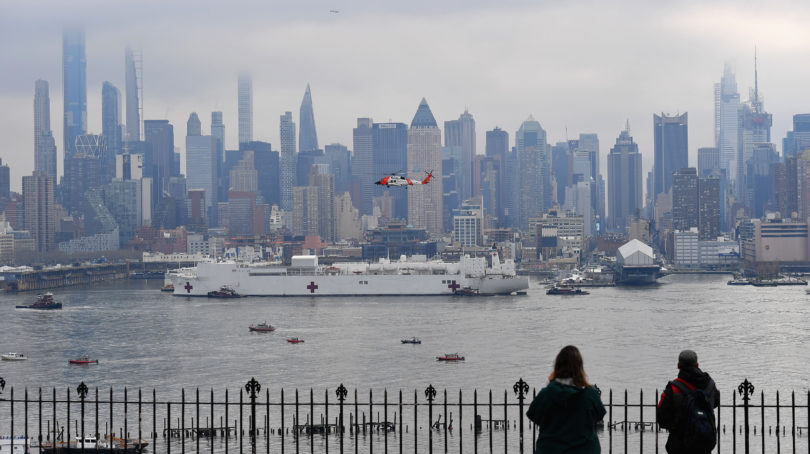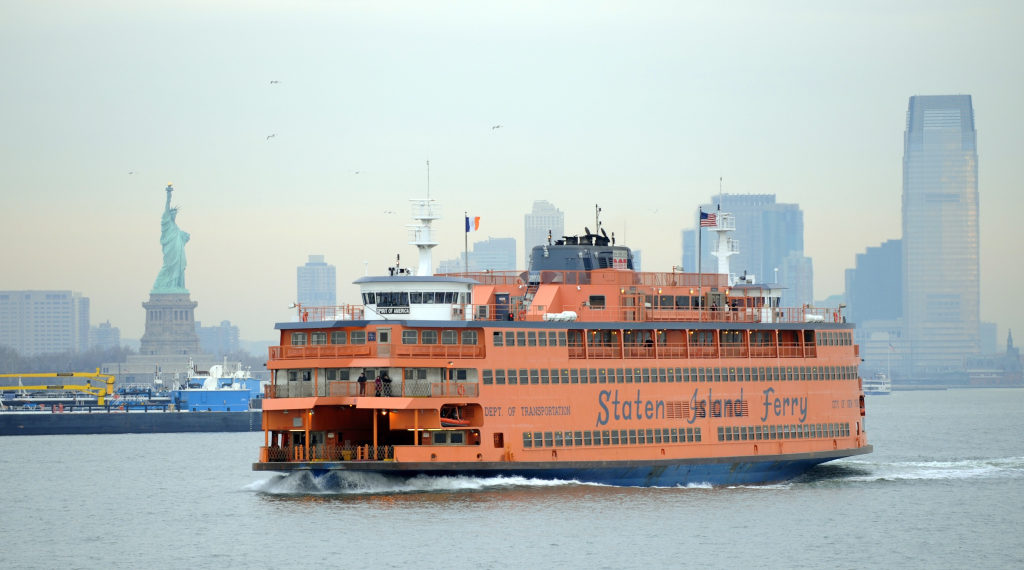As a history professor, I get to play a game with my students: walk around New York City, with a mask on of course, and identify places that you can argue should be “un-named.”
The game has two parts – easy and hard. The easy part is identifying things. The hard part, however, requires critical thinking.
Places Named After Bigots
Peter Stuyvesant, the Dutch director-general of the colony of New Amsterdam, has his name on an elite high school, neighborhoods and housing developments, streets, and a square.
Stuyvesant, however, was also a slave owner. While denying the entry of Jews into New Amsterdam he said that “the deceitful race — such hateful enemies and blasphemers of the name of Christ — be not allowed further to infect and trouble this new colony.”
The George Washington Bridge and Madison Avenue are named after the first and fourth presidents, both of whom were slave owners. Madison was also the “father of the US Constitution” which counted slaves as 3/5ths of a human for taxation and allocation of seats in the House of Representatives.
We have streets in the Fort Hamilton section of Brooklyn named after Confederate generals Robert E. Lee and Stonewall Jackson. The Butler Library at Columbia University is named after Nicholas Murray Butler, promulgator of anti-Semitic quotas to limit the access of Jews to higher education.
If you want to play the game and go for the jugular, you could assert that the name New York itself should be thrown into the bin. King Charles II of England granted a charter to the Company of Royal Adventurers Trading to Africa. Led by the king’s younger brother James, the Duke of York (later King James II), this group had a monopoly on the British slave trade with West Africa.
Roads and Places Named After Unsavory Businessmen or Public Figures
New York has a river, bridge, and highway named after the English explorer Henry Hudson, sailing on behalf of the Dutch, who “bought” New York from the native inhabitants. Hudson “bought” something from a culture that did not agree with the idea of “owning” the sky, wind, water, or earth. It was an imposition of European concepts of property ownership upon the indigenous inhabitants.

The Frick Museum is named after Henry Clay Frick who played a major role in the alterations to a dam that caused its failure followed by the catastrophic 1889 Johnstown Flood. His union-busting techniques resulted in major loss of life at the Homestead Strike.
There are parks, a dam, and a causeway named after Robert Moses whose building projects ran roughshod over poor neighborhoods and manipulated people and government contracts.
Places Named After Philanderers
Brooklyn is Kings County, named in honor of the same King Charles II who chartered the slave-trading company. The King’s bevy of mistresses caused great heartache to his wife Queen Catherine of Braganza after whom, some people think, the borough of Queens is named.
Staten Island is named Richmond County after the Duke of Richmond: the illegitimate son of Charles II and one of his mistresses.
When it comes to chronic philanderers it won’t take long until one of the students brings up JFK Airport or anything named after Donald Trump.
Thinking Critically
Identifying things to un-name is easy. Now comes the hard part: thinking critically about each one. When we name places in honor of people, we are reminded that people are multidimensional.
No one is perfect. How do you weigh and balance the good that was done by George Washington, James Madison, and John F. Kennedy against their public and private shortcomings? That’s the hard work of thinking critically about history.
We need to understand the facts and then dig deeper and understand them in the context of their time and place.
A commission considering renaming places in New Orleans that honor Confederates and White supremacists will start with a list of 25 streets and three parks identified by researchers at the New Orleans Public Library. Story by @jadelson: https://t.co/V9U9Xn3urG pic.twitter.com/gWy8bnxnKj
— Dan Swenson (@NolaGraphicsGuy) August 20, 2020
It’s not entirely fair to judge someone who lived in the 17th century by the standards of the 21st century. When you think critically about history, you are digging for deeper truths than just facts. You also want to understand how people interpreted facts in their era as compared to how we do it now.
Un-naming public places can begin as a classroom game. The game, however, becomes a serious business. A public debate informed by historical facts and expert advice is necessary.
So, the next time you take a walk, particularly with your children or students, you might want to talk about why things are named as they are and if they should remain that way.
Disclaimer: The views and opinions expressed here are those of the author and do not necessarily reflect the editorial position of The Globe Post.






















